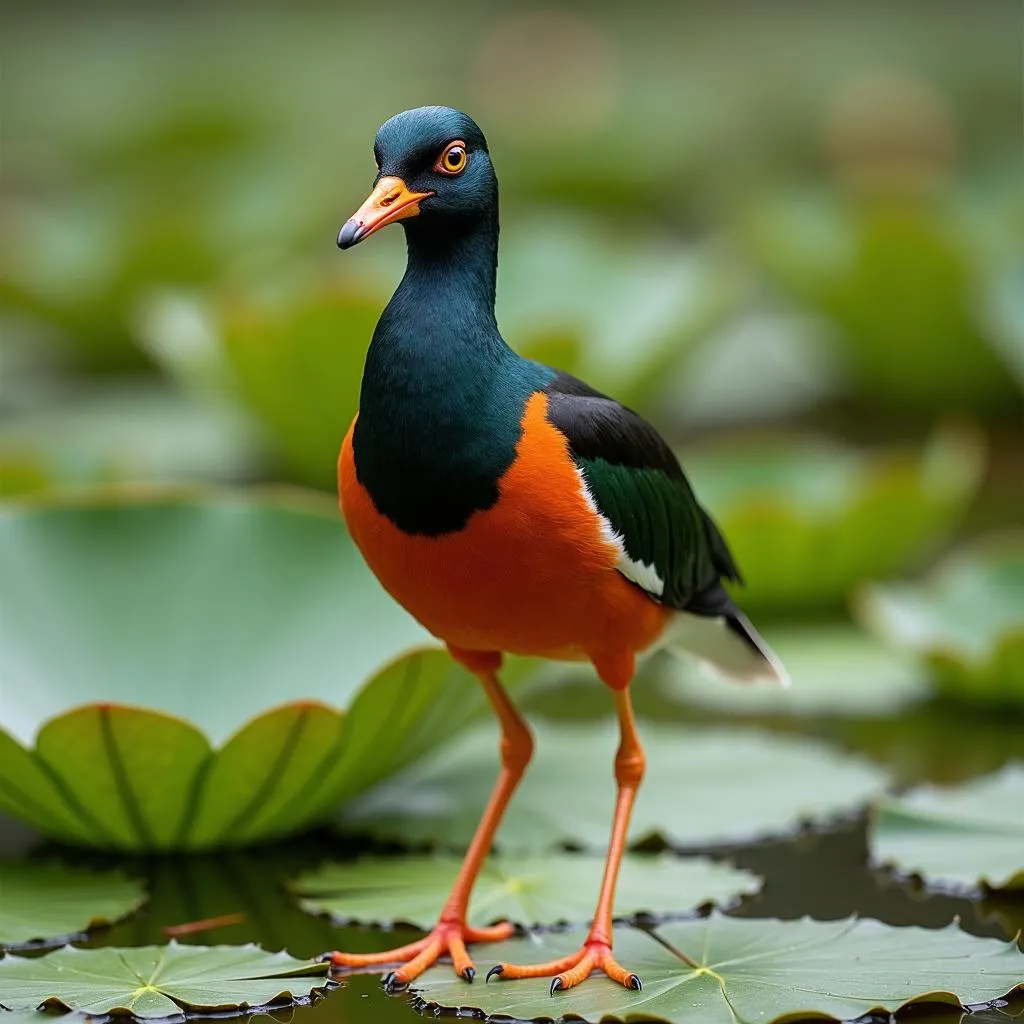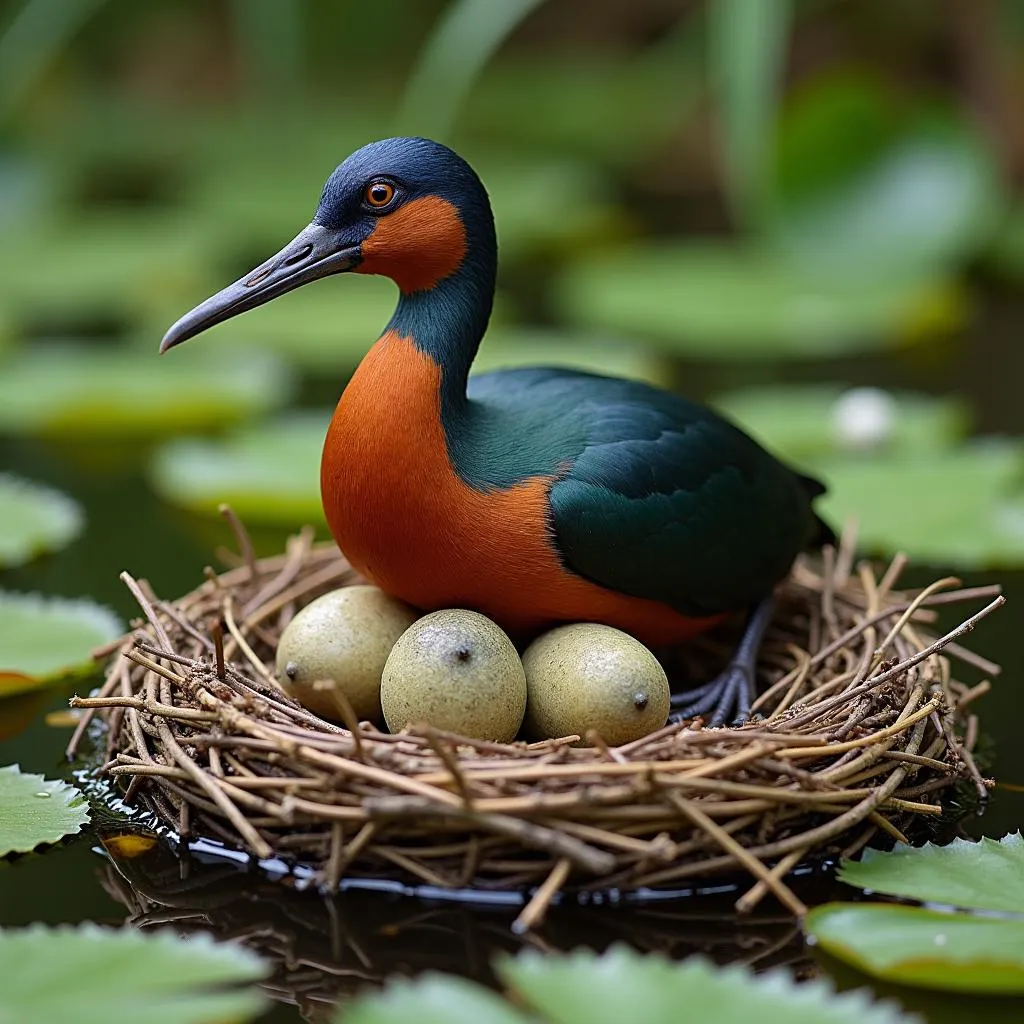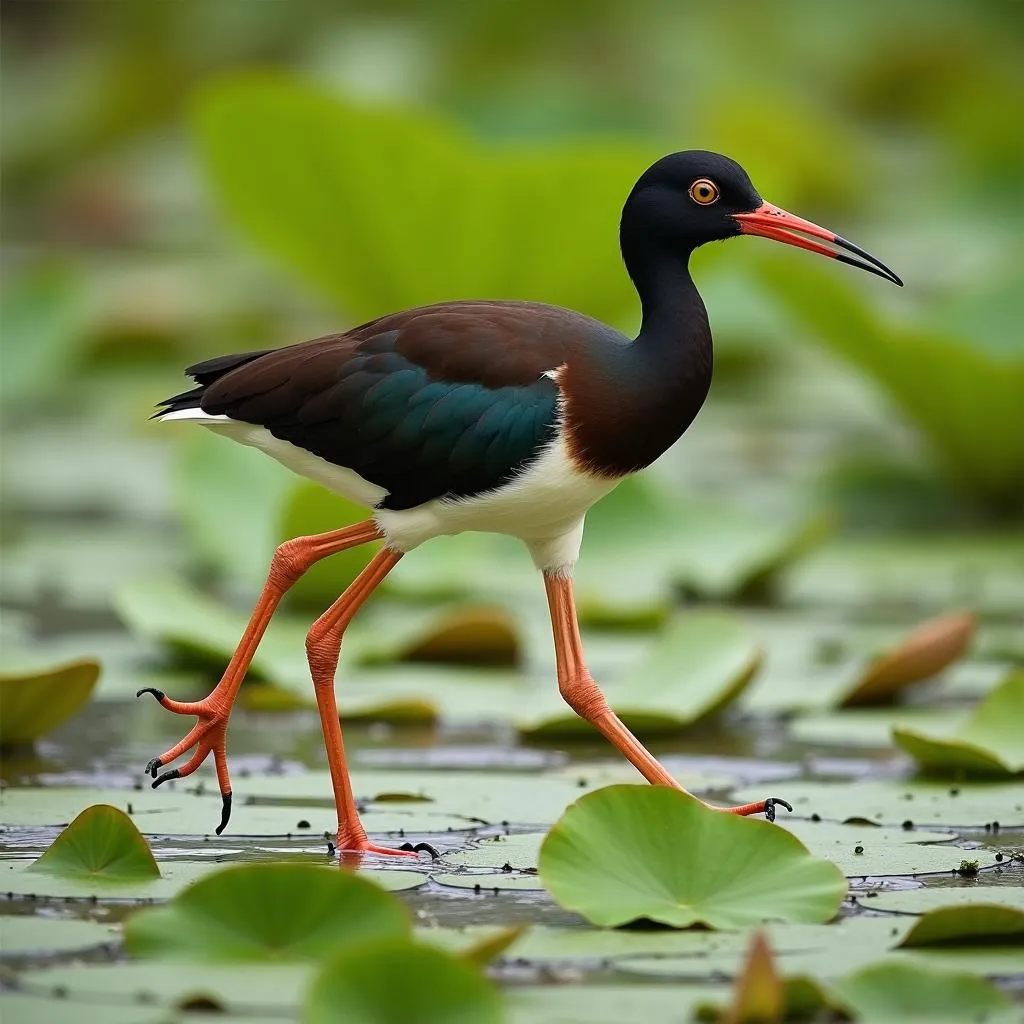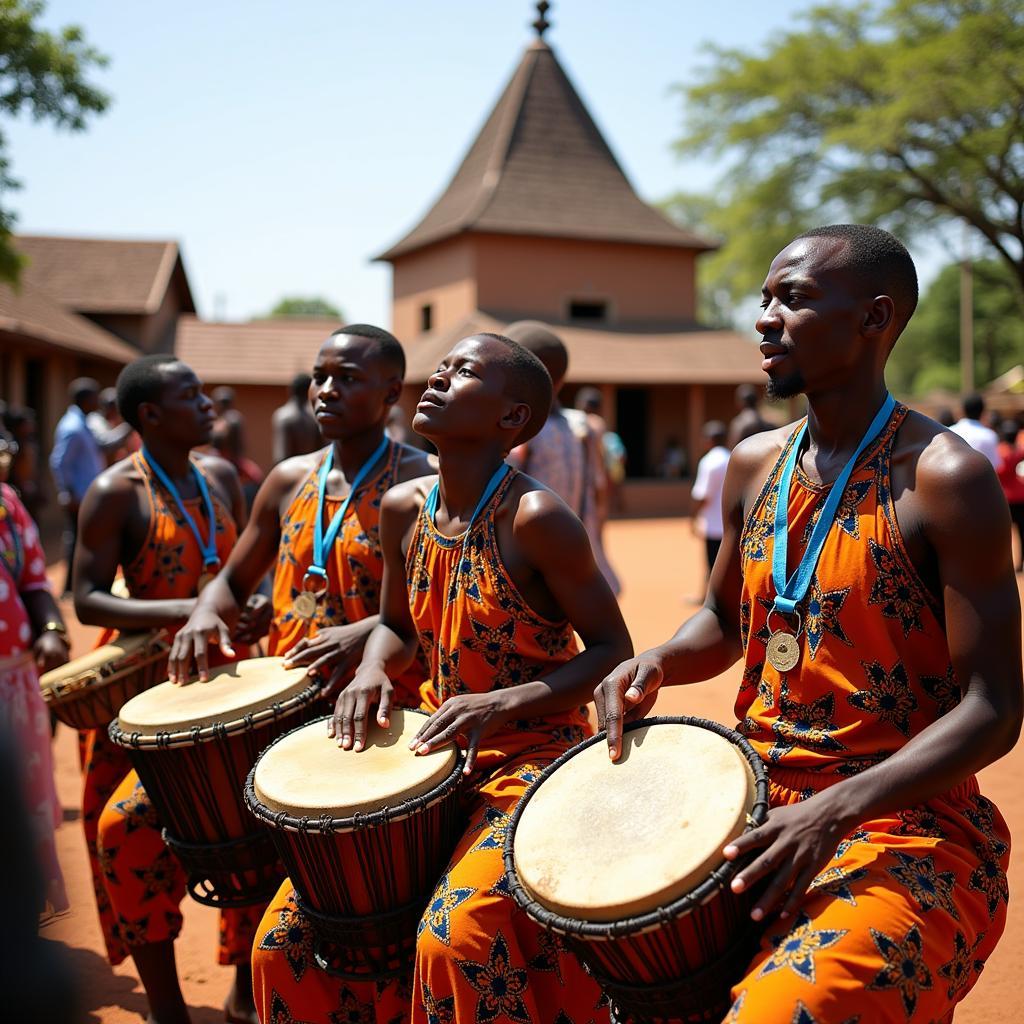Navigating the Waters: Understanding the African Jacana’s Unique Mating System
The African Jacana, also known as the Lily-trotter or Jesus bird, is a fascinating creature found in sub-Saharan Africa. These striking birds, instantly recognizable with their long toes and bronze wings, are more than just a pretty sight. They captivate us with their unique social behaviors, particularly their unusual mating system where the females hold the reins of power.
A Role Reversal: Female-Dominance in the African Jacana
In the avian world, the African Jacana stands out with its reversed sex roles. Unlike most bird species where males compete for female attention, female African Jacanas are the ones calling the shots. They are larger and more vibrantly colored than their male counterparts, a clear indication of their dominant status.
 African Jacana female fiercely guarding her territory
African Jacana female fiercely guarding her territory
These assertive females establish and fiercely defend territories that encompass multiple males. This control over prime breeding grounds is key to their success, attracting numerous suitors vying for their favor.
The Burden of Beauty: Male Jacanas and Parental Care
While the female Jacanas focus on territory defense and attracting mates, the males bear the responsibility of nest building and chick rearing. This atypical division of labor is crucial to the Jacanas’ breeding strategy.
 Male African Jacana diligently incubating eggs
Male African Jacana diligently incubating eggs
Females lay multiple clutches of eggs, leaving each clutch to the care of a different male within their territory. This allows them to maximize their reproductive output, a crucial advantage in their often-unpredictable wetland habitat.
Navigating the Challenges: Threats to the African Jacana
Despite their adaptive strategies, African Jacanas face several threats, primarily habitat loss and degradation. Wetland drainage for agriculture and development significantly impacts their breeding grounds and food sources.
 African Jacana foraging for insects in its natural wetland habitat
African Jacana foraging for insects in its natural wetland habitat
Pollution from agricultural runoff and industrial waste also poses a significant threat to these delicate ecosystems and the species that depend on them. Conservation efforts focused on protecting wetlands and promoting sustainable water management practices are essential for the long-term survival of the African Jacana.
Conclusion
The African Jacana offers a captivating glimpse into a world where traditional gender roles are reversed. Their unique social structure, with female dominance and male parental care, is a testament to the diversity and adaptability of life on Earth. By understanding and appreciating the fascinating dynamics of the African Jacana, we gain a deeper appreciation for the intricate web of life and the importance of conserving biodiversity.




